|
Saturdee
Opry Links # 123:
French Tenors
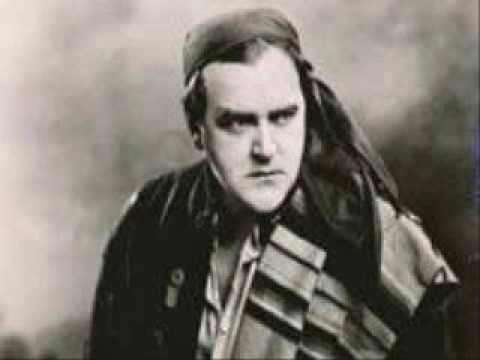
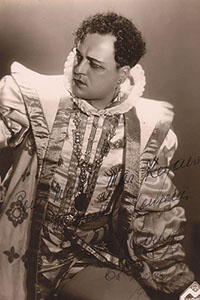
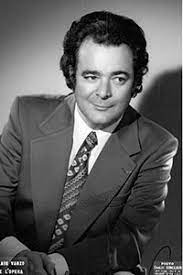
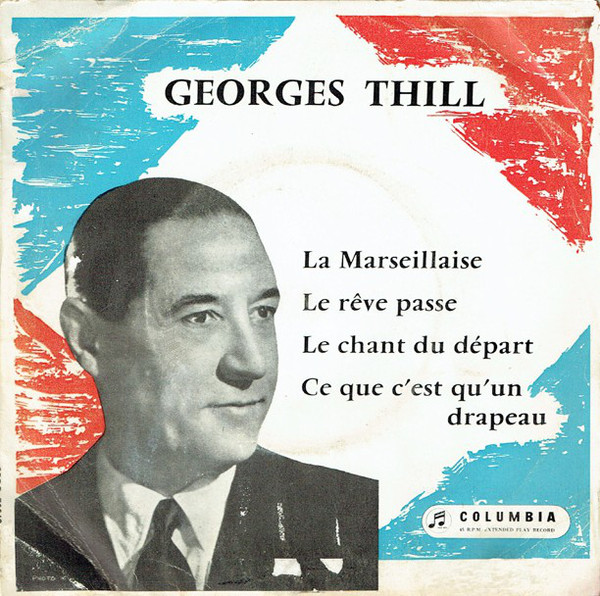
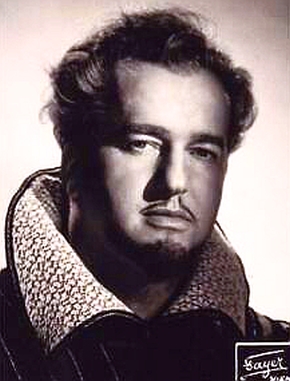
Raoul Jobin
Andre D’Arkor
Alain Vanzo
Georges Thill Leopold Simoneau
Saturdee Opry Links Overture!
Donizetti: Anna Bolena
https://www.youtube.com/watch?v=VziFUy1pQSE
1.
Thank goodness for the advent of recording, else we would not have the legacy of
so many wonderful singers, including the Belgian tenor, Andre D'Arkor. He had a
bright, ringing, vigorous voice especially suited to French repertory---able to
float gentle upper register passages, assay the heroic high note, and softly
persuade. Here he sings the uplifting, rather delightful "Vainement ma bien aimée," ("In vain, my
beloved") from the largely eclipsed opera, "Le Roi d'Ys," ("The
King of Y's") by Edouard Lalo.
https://www.youtube.com/watch?v=CkehBGx9q1A
Synopsis: Mylio, a young warrior, tries to convince Rozenn, his bride-to-be, to
leave the protection of her handmaidens (who, in accordance with local custom,
refuse to allow him entrance to her living quarters) and join him in the wedding
procession.
Translation:
https://drammapermusica.wordpress.com/2009/05/07/vainement-ma-bien-aimee/
About D'Arkor:
http://www.operavivra.com/artists/tenors/andre-darkor/
https://historyofthetenor.com/andre-darkor/
2.
One more spectacular example from D'Arkor. From Rossini's "William Tell," this
is the mighty tenor aria, "Asile héreditaire" ("Ancestral home.") It's
expository, but replete with Rossini lyricism, and builds to a colossal finish.
https://www.youtube.com/watch?v=9EpW2f0ctdY
Setting: the ruined house of Melcthal, Altdorf, Switzerland, thirteenth century
Synopsis: Arnold looks upon the ruined house in which he grew up and remembers
his father, who was killed by the Austrians.
Translation:
"Ancestral home
where my eyes opened to the light of day,
only yesterday your protective shelter
offered a father to my love.
I call in vain, o bitter grief!
I call in vain, o bitter grief!
I call, he no longer hears my voice!
I call, he no longer hears my voice!
Beloved walls within which my father dwelt,
I come to see you for the last time!
I come to see you, etc.
Ancestral home
where my eyes opened to the light of day,
beloved walls within which my father dwelt,
I come to see you for the last time!
I come to see you, etc."
French:
"Asile héréditaire,
Où mes yeux s’ouvrirent au jour,
Hier encore, ton abri tutélaire
Offrait un père à mon amour.
J’appelle en vain, douleur amère !
J’appelle en vain, douleur amère !
J’appelle, il n’entend plus ma voix !
J’appelle, il n’entend plus ma voix !
Murs chéris qu’habitait mon père,
Je viens vous voir pour la dernière fois !
Je viens vous voir, etc.
Asile héréditaire,
Où mes yeux s’ouvrirent au jour,
Murs chéris qu’habitait mon père,
Je viens vous voir pour la dernière fois !
Je viens vous voir, etc."
3.
Georges Thill, widely considered to be the "greatest" French tenor of the
early/mid-20th Century, started out as a stockbroker. Thankfully for us, he had
more interest in music than money, often serenading co-workers with arias from
great operas. Still, he was a gifted amateur---starting off, like so many, by
copying from records. Thill was drafted into WWI and sent to the Front in 1916,
where he became a distinguished soldier (marked by "kindness, courage, high
spirits," according to biographer Karen Mercedes.) After surviving that horror,
he returned to Paris, but not the stock market. An uncle suggested he study
music at the Paris Conservatory, which he did---but did not find the guidance he
wanted, at least not until studying privately with a well-regarded Italian
tenor, Fernando de Luca. Thill's ringing, clean delivery would seem at odds with
the opulent bel canto style of de Luca, yet the relationship was beneficial to
Thill, who learned a more legato style (flowing, smooth) in the process. Here,
Thill sings "Angus du Paradis," from the seldom-performed opera, "Mireille," by
Gounod.
https://www.youtube.com/watch?v=Ec5oYu1KixI
Synopsis:
A mulberry grove on Midsummer night (Fête de la Saint-Jean).
Girls sing as they pick the leaves to feed to silkworms. Taven, an old woman who
lives in nearby caves, joins them and comments on their jollity, but they laugh
at "the witch" and Clemence voices her wish for a rich husband. Mireille,
however, wants to marry for love, even if her husband is poor and shy, but is
teased by the other girls who know that she has set her heart on a poor
basket-weaver, Vincent. Taven shares her forebodings with Mireille. Vincent
passes by and Mireille gets him to confess his love in the aria, "Anges du
Paradis."
Translation:
"Anges du paradis, couvrez la de votre aile!
Dans les airs étendez votre manteau sur elle!
Et toi, brûlant soleil d'été,
Fais grâce à sa jeunesse, épargne sa beauté!
Je l'ai vue à travers mon rêve,
Dans la lande aux souffles de feu,
Accourant seule vers la grève,
Pâle et le front courbé, sous l'éclat du ciel bleu,
Invoquant les Saintes et Dieu!
Anges du paradis, couvrez la de votre aile!
Dans les airs étendez votre manteau sur elle!
Et toi, brûlant soleil d'été,
Fais grâce à sa jeunesse, épargne sa beauté!"
ENGLISH: (approximate)
"Angels of paradise, cover her with your wing!
In the air spread your coat over her!
And you, burning summer sun,
Thanks to youth, spare her beauty!
I saw her through my dream,
In the heath of fire breaths,
Running alone,
Pale and curved forehead, under the brightness of the blue sky,
Invoking the Saints and God!
Angels of paradise, cover her with your wing!
In the air spread your coat over her!
And you, burning summer sun,
Thanks to youth, spare his beauty!"
4.
“Quien Es Mas Macho?” El tenor francés George Thill o el tenor francés Alan
D'Arkor? Both are wonderful, of course, yet Thill is generally considered the
better of the two. Well. Listen to their renditions of the same aria, here, and
see which you prefer. D'Arkor sings with less restraint, more bravado than Thill, yet Thill, who seems less powerful, emphasizes more
of a flowing, beautiful line (that Italian influence.) The aria is "Pourquoi Me
Reveiller" from "Werther," by Massenet. ("Why do you awaken me?") First is Thill:
https://www.youtube.com/watch?v=V8wrx7kFaUE
Then D'Arkor: https://www.youtube.com/watch?v=LhZA_kyi4LU
Setting: the Magistrate's house at Christmas, Frankfurt, Germany, 1780
Synopsis: Werther has come back to see Charlotte, his love who now is married to
another man. She shows him some of the books that they used to read together.
One book in particular, a collection of Ossain's verses, sparks Werther to ask
spring to cease its gentle caresses upon him, for sadness and grief is now his
fate.
Translation:
http://www.aria-database.com/search.php?individualAria=657
5.
You've probably noticed by now that the "French tenor" voice tends to be, at
least in part, a lighter, brighter kind of voice. The how and why of this, I'm
not sure---perhaps a sort of chicken or egg thing. Certainly much French opera
tenor repertory lends itself to such specific tonal character. Raoul Jobin was a
French-Canadian tenor who achieved much success in the '30's and '40's (was a
Met regular for several years), but is largely forgotten today. He debuted to
much acclaim as Tybalt in 1930 in "Romeo and Juliette," by Gounod (his middle
name, by the way, was Romeo.) Here he is in a splendid performance (as Romeo) of
"Ah! Leve-toi, soleil," from that same opera. What a melody!
https://www.youtube.com/watch?v=n7EWoqDVASQ
Setting: Juliet's balcony at the Capulet estate, Verona, Italy, 14th century
Synopsis: Romeo has escaped from his companions in search of Juliet's room. He
finally spies her on her balcony and sings of her beauty which is like the sun.
The words are almost exactly translated from Shakespeare's Romeo and Juliet.
Translation:
http://www.aria-database.com/search.php?individualAria=560
Just for fun, here is a non-Frenchman (the great Nicolai Gedda), who combined a
"light bright" sound with immense power. Same aria:
https://www.youtube.com/watch?v=yqCVdBbdbD8
6.
Fudging here a little. . ."La Fille du Régiment" was written by Donizetti, but
is performed in French (which makes sense, seeing as it is set in France!) And
yes, there are still French tenors today, beginning with Roberto Alagna, who
here sings the antic, exuberant aria, "A Mes Amis" ("Ah, my friends"), complete
with its famous (or infamous) nine---count 'em---nine high C's. (They come
toward the end.) Now, Alagna had (and still has) a kind of large, heroic voice (spinto),
which is quite different from when a lyric tenor takes this aria on. Have fun.
Setting: an army camp site in a valley in the Swiss Tyrolese Mountains, 1815
Synopsis: After Tonio, a Tyrolean peasant in love with Marie, has been made a
member of the French Grenadiers, he approaches some of the members and explains
that he has joined the regiment because he loves the regiment's "daughter"
Marie. In the cabaletta, "Pour mon âme", after asking the members of the
regiment to allow him to marry Marie and receiving an affirmative answer, Tonio
sings his joy at finally being united with his one love. He promises to take
care of her and protect her forever.
https://www.youtube.com/watch?v=Xg0BxsYueIM
Translation:
http://www.aria-database.com/search.php?individualAria=783
And here is how the thing sounds with a lighter, more lyrical voice, in the
person of the astonishing lyric tenor, Juan Diego Florez---live on stage at the
Met! Fun to watch!
https://www.youtube.com/watch?v=iIv_0Kj9Gfw
(Interesting to note that both Alagna and Florez, now older, have heftier,
darker voices, and are taking on corresponding types of roles.)
7.
Alagna is still going strong in his late fifties, though, as expected, his voice has exchanged
buoyancy for a touch of darkness and muscularity. (Hardly a criticism.) Here he
assays the anguished aria from Massenet's "Manon," "Ah Fuyez Douce Image" ("Ah,
vanish, sweet memory!") from a 2007 performance in Vienna. (Can you imagine the
work and care it takes to remain a viable singer for decades? I can't.) Alagna,
by the way, has made it his mission to champion neglected French operas by
Massenet, Lalo, Alfano. (Aria begins at 1:28, if you wish to skip the
introductory portion.)
Setting: The reception room in St. Sulpice church, France, 18th century
Synopsis: After entering the seminary in order to forget about Manon, Des Grieux
finds that he is unable to forget his love for her. He prays to God to remove
this shadow from his heart.
https://www.youtube.com/watch?v=SNaA3ieNF0Y
Translation:
http://www.aria-database.com/search.php?individualAria=614
8.
Here is a great clip of Georges Thill in action, here rehearsing an aria from
Joseph Canteloube's (forgotten) opera, "Vercingétorix"---with the composer
accompanying him at piano. The opera was based on the life of the Gallic
chieftain and resistance fighter who, despite having been defeated by Julius
Caesar in 52 B.C., is a mythic figure and national hero in France today. Regret
that I am unable to identify the aria, or furnish translation. Still, it's a
thrill
to see Thill sing here.
https://www.youtube.com/watch?v=ThUmVgD6GhA
About Vercingetorix:
https://www.npr.org/2013/08/08/209514127/how-gaul-ing-celebrating-frances-first-resistance-fighter
9.
Leopold Simoneau was a French-Canadian tenor with a great flair for Mozart and other
lyric tenor roles. He also had a gentle touch for almost crooning, as the case
here with "Chanson Triste" ('Sad Song"), the wonderful song by poor Henri Duparc
(who went blind and destroyed most of his work.)
https://www.youtube.com/watch?v=D7YNwG2eHdg
Translation:
https://www.oxfordlieder.co.uk/song/2629
About Duparc:
https://en.wikipedia.org/wiki/Henri_Duparc_
About Simoneau:
https://en.wikipedia.org/wiki/L%C3%A9opold_Simoneau
https://www.nytimes.com/2006/08/29/arts/music/29simoneau.html
FINAL BOW:
Born in Monte Carlo, Alain Vanzo was the son of a Mexican father and French
mother. He found himself at ease in the church choir as a boy, graduated to pop
songs, and in 1954 won first prize in a singing contest in Cannes. From there it
was on to Opera Comique and a great career in lyric tenor roles. His touch with
the upper register was delicate and beautiful, as is evidenced here with
Gounod's poignant aria from "Faust," "Salut, demeure et chaste."
https://www.youtube.com/watch?v=AiC4x7dQtJA
Setting: The garden of Marguerite in a German city, 16th century
Synopsis: Approaching Marguerite's house, Faust---an old man made young again by
Mephistofeles---is struck by the purity of the dwelling and the innocence of
Marguerite inside. He then goes on to thank Nature for creating the beautiful
angelic creature that is Marguerite.
Translation:
http://www.aria-database.com/search.php?individualAria=373
Alain Vanzo NYT obituary:
https://www.nytimes.com/2002/02/24/nyregion/alain-vanzo-73-famed-tenor-who-embodied-french-lyricism.html
More about Vanzo:
https://www.operanews.com/Opera_News_Magazine/2013/8/Recordings/Alain_Vanzo.html
Saturdee Opry Links French Tenor encore!
Back to today's greatest French tenor, Roberto Alagna, with the playful,
rousing, infectious "Au Mont Ida," from "La Belle Helene," by Jacques Offenbach.
It's a comic opera, and despite the almost heroic atmosphere of this aria, the
tenor is relating the tale of a beauty contest among goddesses, of all things.
"These goddesses have funny ways. . ."
https://www.youtube.com/watch?v=HgkQFQAxLD4
Translation:
At Mount Ida, three Goddesses
Quarreling in a wood.
What is, said these Princesses,
The most beautiful of the three of us?
Evohe, that these Goddesses,
To enthrall the boys,
evoked, that these Goddesses
Have funny ways.
A young man passes through this wood,
A young, handsome and handsome man (It's me!)
His hand was holding an apple,
You can see the picture.
Ah, hello, eh! The handsome young man,
One moment, stop,
And please give the apple
to the most beautiful of us.
Evohe, that these Goddesses,
To enthrall the boys,
evoked, that these Goddesses
Have funny ways.
One says: I have my reserve,
My modesty, my chastity,
Give the price to Minerva,
Minerva deserved it.
Evohe, that these Goddesses,
Have funny ways.
The other says: I have my birth,
My pride and my peacock.
I have to prevail, I think,
Give the apple to Juno.
Evohe, that these Goddesses,
Have funny ways
To enthrall the boys,.
The third, ah, the third!
The third says nothing;
She got the price all the same,
Calchas, you can hear me!
Evohe, that these Goddesses,
To enthrall the boys,
evoked, that these Goddesses
Have funny ways.
Original French:
https://greatsong.net/PAROLES-ROBERTO-ALAGNA,AU-MONT-IDA-TROIS-DEESSES,100129198.html
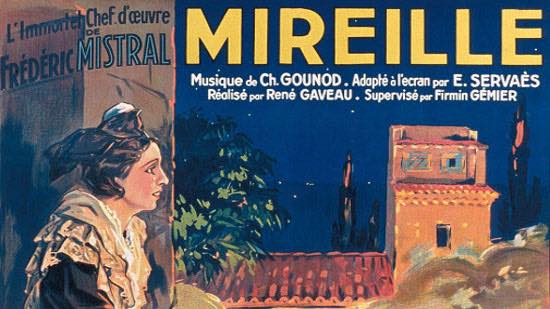
Back to Opera Links
Back to Home Page
|



